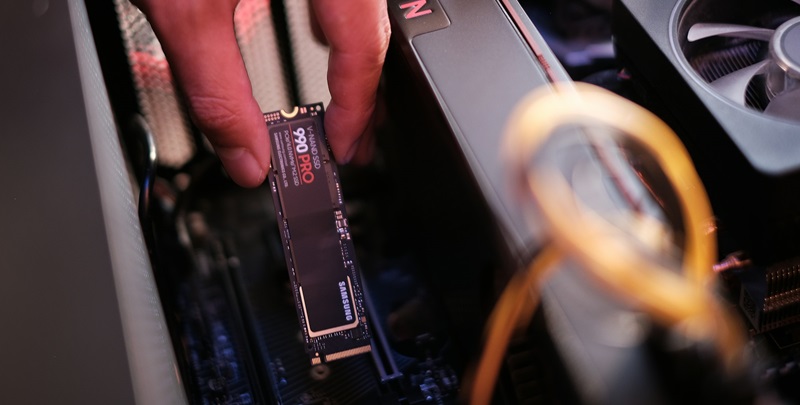AMD is stepping up its game in the realm of AI accelerators with its Instinct MI300 series. By integrating the cutting-edge HBM3e memory, as mentioned by CTO Mark Papermaster during the Arete Investor Webinar, AMD is boosting performance significantly. This move propels AMD into direct competition with the likes of NVIDIA, offering a 50% increase in speed over HBM2. With HBM3e, the Instinct series is poised for a leap in performance, boasting up to 1.5 TB of memory capacity and reaching system bandwidths of up to 10 TB/s.
This leap is not merely technical; it signifies AMD’s commitment to addressing the intricate demands of AI, where high throughput and large memory reservoirs are crucial. Enterprises and research institutions engaged in deep learning and complex simulations will find AMD’s enhanced series particularly alluring. AMD’s bold stride with the Instinct MI300 series promises to make a substantial impact on the ever-expanding AI market.
Expanding Horizons: Catering to a Broader Market
AMD is aggressively expanding into AI accelerators with a dual focus on high performance and cost-efficiency, aiming to dominate not only the high-end market but also the mid-tier segment. Their commitment goes beyond sheer power; they strive to make advanced AI computation more accessible to a diverse range of users. Such a market approach could shift the competitive landscape, making cost-performance key in tech adoption.
Mark Papermaster of AMD has indicated that the company will not only upgrade their Instinct MI300 series with better memory but also introduce new variants within the series. With plans to transition from 8-Hi to 12-Hi memory stacks, AMD shows an unwavering pursuit of innovation and a keen responsiveness to market needs. Through this strategy, AMD is set to offer powerful AI tools to a wider audience, bridging the gap between affordability and advanced computational capabilities.
Setting A New Industry Benchmark
AMD’s Foray into Future Innovations
AMD is not only keeping up with the tech world but also aims to lead, especially with its 2025 outlook for the Instinct MI400. This AI accelerator represents AMD’s intent to be at the forefront, signaling continuous and substantial updates to their lineup. The industry is poised for a shake-up, with AMD challenging established standards and potentially setting new ones.
The excitement around the Instinct MI400 isn’t merely about its expected performance boost; it hints at possible architectural leaps—perhaps a novel CPU-memory collaboration or a stride towards unmatched energy efficiency in AI acceleration. AMD’s forward thrust hints at a future where innovation is the norm, keeping the sector abuzz with speculation. With the company’s relentless drive for advancement, what the industry will witness next remains an intriguing unknown.
Preparing for Market Disruptions
AMD is charting new territory in AI acceleration, signaling a potential shake-up in the market. The tech community is watching closely as AMD embarks on delivering cost-effective and innovative solutions that promise to challenge the status quo. Central to AMD’s success will be the robustness of its supply chain as they must meet the soaring demand for their latest AI accelerators.
As AMD gears up, its strategic execution is under scrutiny. Success hinges on their ability to ensure consistent availability of their advanced AI hardware. Securing a steady supply could give AMD a lasting advantage, especially in markets in need of affordable, high-power computation. Thus, AMD’s bold strategy is not just about tech progression — it’s a move that could alter the competitive dynamics in the AI accelerator industry.

